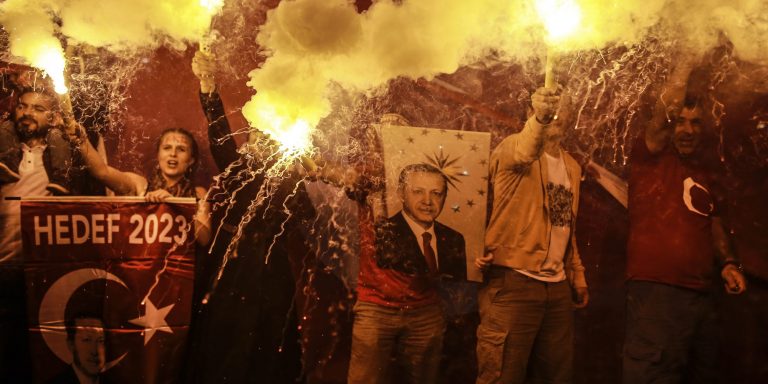INTELBRIEF
July 12, 2018
IntelBrief: Turkey Guts Its Civil Servant System

- On July 08, 2018, the Turkish government purged from its ranks 18,000 civil servants and military personnel.
- The latest purge came a day before President Erdogan was sworn in for another term in office with massively increased powers.
- According to the U.N., Erdogan’s government has purged more than 160,000 civil servants since the failed 2016 coup.
- Repeated purges have left a civil service that is beholden to Erdogan as the symbol and ruler of the state, the opposite of what a civil servant in a democracy should be.
.
In a democracy, civil servants are meant to be apolitical, in the sense that their service spans the terms of presidents or prime ministers from various political parties, providing continuity and expertise in the running of a government. A classic maneuver by an authoritarian regime is to engage in a two-step process to transform its civil service into a cult of personality, built around the country’s leader. The first step is the demonization of large swathes of civil servants as ‘disloyal’—to include military, police and legal personnel, and academics in state-run institutions. The second step is to fire, and in some cases arrest, those who have been deemed disloyal. The result is a gutted civil service that works for a person—not a country. For the last two years, the Turkish government has been engaged in this kind of assault on its civil servants.
Turkey is well on its way to an increasingly authoritarian-style of government, built around President Erdogan. Since the failed July 2016 coup, Erdogan has remade the Turkish civil service—particularly the military and law enforcement, as well as the judiciary to a degree—into a bureaucracy of loyalty. The United Nations’ office for human rights recently estimated that the government has removed more than 160,000 civil servants from their positions for reasons such as disloyalty and suspected ties to terrorism. A third of those removed were brought up on various charges and put in prison.
The Turkish government’s purges, under the direction of Erdogan, were facilitated by the state of emergency that has been in place since July 2016. A quasi-permanent state of emergency is a hallmark of eroding liberty. For example, Egypt has been under emergency rule in some form for all but a handful of years since 1981. Erdogan’s focus for his purges is the base of support for Fethullah Gülen,the man whom Erdogan blames for the 2016 coup, which he believed happened with a U.S. backing or at least, a blessing. The purges have expanded from suspected followers of Gülen to include those charged with vague allegations of supporting terrorism. International human rights groups such as Amnesty International, as well as the U.N., have criticized Ankara for this behavior, and relations between Turkey and the U.S. have become increasingly strained.
On July 08, 2018, the day before he was sworn in again as President, this time with nearly unprecedented powers, Erdogan oversaw another massive purge. More than 18,000 people were sacked, including 9,000 police officers. The government also closed three newspapers and one television station, allegedly for connections with groups that, in the words of the government, ’act against national security.’ The purges came before the expected lifting of the state of emergency by Erdogan. The end of the state of emergency is a needed and positive step, but one that is undercut by the breadth of the new powers of the presidency that Erdogan now wields. These powers include appointing 6 out of the 13 judges on Turkey’s highest court, with the remaining 7 selected by a parliament in which Erdogan has a majority of support. The powers also include controlling the budget and ending the position of Prime Minister.
.
For tailored research and analysis, please contact: info@thesoufancenter.org
[video width="960" height="540" mp4="https://thesoufancenter.org/wp-content/uploads/2018/07/IB-0712.mp4" poster="https://thesoufancenter.org/wp-content/uploads/2018/07/AP_18180824782764-1-e1531386165715.jpg"][/video]